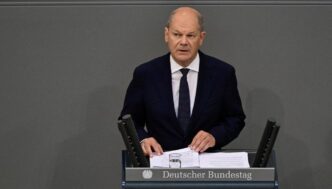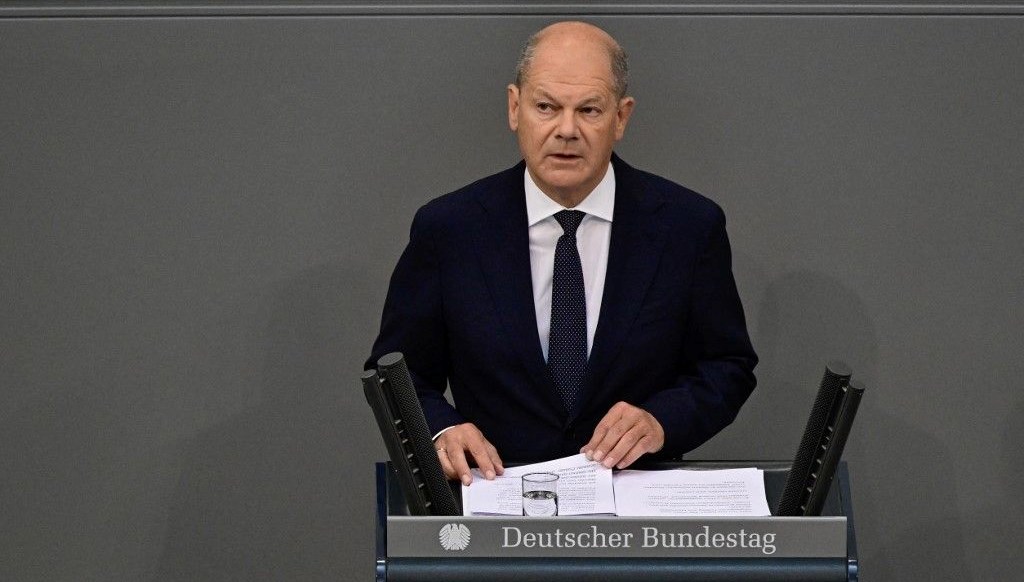German Chancellor Olaf Scholz described European Union (EU) regulations as one of the most important problems of the German economy and promised to reduce bureaucracy and work with industry to increase growth in the country’s economy, which is heading towards recession.
Speaking at the “Employers’ Day” event organized by the German Employers’ Federation in Berlin, German Chancellor Olaf Scholz described EU regulations as one of the most important problems of the German economy. Explaining that the EU has brought about “astounding” practices in bureaucracy with its excessive regulations, Scholz said, “We need to drastically reduce bureaucracy in the EU.” Stating that the German economy has been negatively affected by geopolitical conflicts, Scholz promised employers to rid the economy of bureaucracy. Olaf Scholz said, “As an industrialized and export-oriented country, we have been affected more than others by inflation, rising interest rates, geopolitical conflicts and strained supply chains.” Referring to Europe’s new Supply Chain Act, which forces companies to comply with human rights and environmental protection standards in their supply chains, Scholz said, “We said it, it will be eliminated.” Emphasizing that as a government, they are working to reduce bureaucracy, increase investments and establish competitive energy prices in order to ensure economic growth, Scholz noted that they need more growth. Scholz added that the country needs more skilled workers. GERMAN ECONOMY FACES THE RISK OF ENTRYING INTO RECESSION AGAIN On the other hand, the German economy is having difficulty growing due to reasons such as rising interest rates, cyclical headwinds and structural changes. The economy shrank by 0.1 percent in the second quarter of the year due to decreasing investments. While the German Central Bank expects lower growth in the third quarter, the Institute for Economic Research (Ifo) also assesses that a further decline in GDP is possible in the third quarter. The German economy will have entered a technical recession if there is a contraction in the third quarter. A technical recession is defined as “two consecutive quarters of GDP contraction.” After 10 years of economic growth, Germany experienced its first recession since 2009 in 2020, the first year of the pandemic. On September 5, Ifo cut the country’s growth forecast for 2024 and next year to zero from 0.4 percent due to weak investment and orders. Last year, the German economy shrank by 0.3 percent compared to the previous year due to reasons such as unusually high inflation affecting purchasing power, high energy prices, falling investment, weak external demand and high interest rates. The country thus became the only G7 country to shrink. If Germany shrinks again this year, it will be the only G7 economy to shrink, as it did in 2023.













